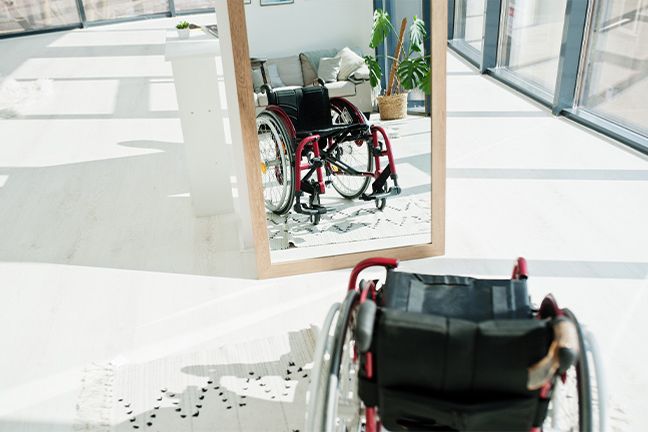In McDaniel v. Payson Healthcare Management, Inc. et al, the Arizona Supreme Court held offering the testimony of plaintiff’s treating physicians on the standard of care, in addition to that of a retained expert, does not violate the One-Expert Rule in some circumstances. When the testimony is based upon the physician’s observations and personal participation in treating the plaintiff, they can testify to the standard of care.[i]
Plaintiff Developed Necrotizing Fasciitis
In McDaniel, Plaintiff cut his knee in a dirt bike accident in Payson and was taken to Payson Regional Medical Center for treatment.[ii] He was treated and released. When his knee injury worsened, he returned to Payson Regional Medical Center twice. During plaintiff’s last visit, a C-Reactive Protein (CRP) test was ordered to check for inflammation. The result of the test was recorded as 45 mg/dl instead of 138.79 mg/dl. When plaintiff’s condition continued to worsen, he was transferred to Scottsdale Shea Medical Center where none of the treating physicians ordered a repeat CRP. At some point, plaintiff developed necrotizing fasciitis, which required surgical removal of all the skin on his right leg. Plaintiff alleged the failure to properly communicate the result of the CRP delayed the diagnosis, resulting in a need for more serious surgical intervention.[iii]
Disclosure of Expected Testimony from Treating Physicians
In their disclosure statements, defendants indicated the plaintiff’s treating physicians at Scottsdale Shea Medical Center would testify about the care they provided to plaintiff.[iv] This would include their personal observations of, and interactions with, plaintiff, and their review of the medical records. These disclosures, the court noted, made clear the doctors were not paid experts and each would be testifying in their capacities as the plaintiff’s treating physicians.[v]
Alleged a Violation of the One-Expert Rule
Plaintiff argued that by asking hypothetical questions about the CRP results and infectious diseases that went beyond the physicians’ personal knowledge of the care they provided, the defense was eliciting expert testimony from the treating physicians, in violation of the One-Expert Rule.
One-Expert Rule Not Violated
Pursuant to Rule 26(b)(4)(F)(i), Ariz.R.Civ.P., each side is presumptively limited to only one retained or specially employed expert to testify on an issue. In a medical malpractice case, in addition to a standard of care expert, a defendant may testify on the standard of care.[vi] Here, the court noted a fact witness may offer expert opinion testimony when the testimony is based upon personal observations and actions, without violating the One-Expert Rule.[vii] As such, in a medical malpractice case, if treating physicians testify based on their observations and actions during the course of their treatment of the plaintiff, the doctors may offer opinions about the standard of care in explaining their treatment decisions.
In the instant case, the Supreme Court agreed with the trial court’s finding the treating physicians testified as fact witnesses. To the extent they were asked questions about the CRP results, those questions were in the context of explaining the treatment they provided. Therefore, their testimony was not impermissible expert testimony.[viii]
Testimony from Treating Physicians in Addition to Expert Testimony Could be Cumulative
Plaintiff argued the treating physicians’ testimony regarding standard of care was cumulative and allowed the defense to argue to the jury that only one person, plaintiff’s expert, testified the standard of care was breached, while thirteen people testified the defendants acted in accordance with the standard of care. But the One-Expert Rule, the court explained, was adopted to limit expert costs, not to address issues with cumulative evidence. Where an issue cuts across several disciplines, the court should liberally allow the expansion of the limitation on experts established by the Rule. Therefore, if a plaintiff faces a “deluge” of experts from the defense, the court may allow the plaintiff to retain additional experts.[ix] Arizona Rule of Evidence 403 governs the issue of cumulative evidence, and it gives the trial court the discretion to preclude expert testimony if it augments or tends to establish a point already proven by other evidence.[x]
Takeaway
In a medical malpractice case, treating physicians may provide testimony regarding the applicable standard of care if they do so in the context of explaining the treatment they provided. The testimony of the treating physicians should be based upon their personal observations and actions, and their expected testimony must be properly disclosed. In determining whether to elicit testimony on the standard of care from treating physicians, counsel should be cognizant of the potential for the trial court to exclude cumulative evidence. While the McDaniel ruling focuses on testimony in medical malpractice cases, fact witnesses, in any case, may offer expert opinions when that testimony is based upon personal observations and actions without violating the One-Expert Rule.
[i] McDaniel v. Payson Healthcare Management, Inc. et al, 250 Ariz. 1999 (2022).
[ii] McDaniel v. Payson Healthcare Management, Inc. et al, 250 Ariz. 1999 (2022).
[iii] Id.
[iv] McDaniel v. Payson Healthcare Management, Inc. et al, 250 Ariz. 1999 (2022).
[v] Id.
[vi] Rule 26(b)(4)(F)(ii), Ariz.R.Civ.P.
[vii] McDaniel v. Payson Healthcare Management, Inc. et al, 250 Ariz. 1999 (2022).
[viii] McDaniel v. Payson Healthcare Management, Inc. et al, 250 Ariz. 1999 (2022).
[ix] McDaniel v. Payson Healthcare Management, Inc. et al, 250 Ariz. 1999 (2022).
[x] Ariz. R. Evid. 403.

 Author: Maria Regina Kupillas
Author: Maria Regina Kupillas
 Editor: Grace Shuman
Editor: Grace Shuman
 Cannabis Workers Allege Quota to Trim 4 Pounds a Day Violates the California Labor Code
Cannabis Workers Allege Quota to Trim 4 Pounds a Day Violates the California Labor Code
 The Ninth Circuit Reminds Us: Every Word Matters
The Ninth Circuit Reminds Us: Every Word Matters
 NO WAY, PRO SE! The Consequences of Abusing the Judicial System as a Pro Se Litigant in Colorado
NO WAY, PRO SE! The Consequences of Abusing the Judicial System as a Pro Se Litigant in Colorado
 Victim of Financial Mismanagement or Unlawful Retaliation? New Jersey City University Program Founder Claims School Retaliated After Reporting Alleged Sexual Harassment
Victim of Financial Mismanagement or Unlawful Retaliation? New Jersey City University Program Founder Claims School Retaliated After Reporting Alleged Sexual Harassment
 “Real Housewives” Gets a Reality Check
“Real Housewives” Gets a Reality Check
 Missing a Chapter: Insufficiency of Expert Deposition Testimony in Medical Malpractice Litigation
Missing a Chapter: Insufficiency of Expert Deposition Testimony in Medical Malpractice Litigation
 Crash Course: Why Summary Judgment Misses the Mark in Illinois Multi-Cause Limousine Crash Collision
Crash Course: Why Summary Judgment Misses the Mark in Illinois Multi-Cause Limousine Crash Collision
 Bitter Truths: Lead, Cadmium, and Defective Pleadings in California Chocolate Class Action
Bitter Truths: Lead, Cadmium, and Defective Pleadings in California Chocolate Class Action
 The Law of Unintended Consequences: Including Insurance Brokers in Litigation Strategy Communication May Waive the Attorney-Client Privilege
The Law of Unintended Consequences: Including Insurance Brokers in Litigation Strategy Communication May Waive the Attorney-Client Privilege
 An Employer Can Benefit from Being the Most Reasonable Person in the Courtroom
An Employer Can Benefit from Being the Most Reasonable Person in the Courtroom
 The Party Who Controls the Narrative Controls the Outcome in Trial
The Party Who Controls the Narrative Controls the Outcome in Trial
 $1.75 M Settlement Ends EEOC Claim
$1.75 M Settlement Ends EEOC Claim
 Pandemic Nightmare: Horse Racing Track Wants Coverage for COVID Business Losses
Pandemic Nightmare: Horse Racing Track Wants Coverage for COVID Business Losses
 I (May) Survive: A Respondeat Superior Claim May Survive Despite Dismissal of a Claim Against an Employee
I (May) Survive: A Respondeat Superior Claim May Survive Despite Dismissal of a Claim Against an Employee
 Arizona Construction Lenders Beware – You Might Not Be Insured Against a Senior Mechanics’ Lien!
Arizona Construction Lenders Beware – You Might Not Be Insured Against a Senior Mechanics’ Lien!
 Arizona Court of Appeals Insulates County from Liability for Deputy Sheriff’s Negligence
Arizona Court of Appeals Insulates County from Liability for Deputy Sheriff’s Negligence
 Arizona Court of Appeals Clarifies the Burden of Proof in a Motion for Summary Judgment
Arizona Court of Appeals Clarifies the Burden of Proof in a Motion for Summary Judgment